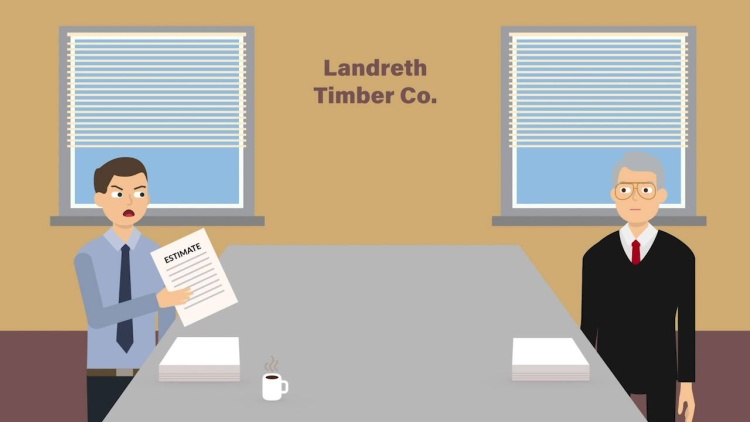Landreth Timber Co. v. Landreth
United States Supreme Court
471 U.S. 681, 105 S. Ct. 2297, 85 L.Ed.2d 692 (1985)
- Written by Jamie Milne, JD
Facts
Ivan Landreth and his sons (defendants) owned the stock in their family lumber business. Wanting to sell the business, they offered their stock for sale. During the sale process, a fire severely damaged the sawmill. Potential purchasers were notified and provided with an estimate of repairs along with projections regarding the business’s profitability. Relying on that information, Samuel Dennis and his business partner purchased the stock and formed Landreth Timber Company (Landreth Timber) (plaintiff). The repairs proved more expensive than anticipated, and the projections were off, forcing Landreth Timber to sell the mill and go into receivership. Landreth Timber then sued Ivan and his sons, arguing that they (1) violated the Securities Act of 1933 by selling their stock without registering it and (2) violated the antifraud provisions of the Securities Exchange Act of 1934 by misrepresenting the business’s financial condition. Ivan and his sons moved for summary judgment, arguing that under the sale-of-business doctrine, the stock did not qualify as securities subject to the federal acts. The sale-of-business doctrine, adopted by some courts of appeal, held that federal securities law did not apply to sales of 100 percent of a close corporation’s stock. The reasoning was that such sales were in effect the sale of a private business, not a sale of stock in the usual sense, and thus the federal acts should not apply. The district court granted summary judgment, holding that the stock was not a security. The court of appeals affirmed. The United State Supreme Court granted certiorari.
Rule of Law
Issue
Holding and Reasoning (Powell, J.)
Dissent (Stevens, J.)
What to do next…
Here's why 907,000 law students have relied on our case briefs:
- Written by law professors and practitioners, not other law students. 47,100 briefs, keyed to 996 casebooks. Top-notch customer support.
- The right amount of information, includes the facts, issues, rule of law, holding and reasoning, and any concurrences and dissents.
- Access in your classes, works on your mobile and tablet. Massive library of related video lessons and high quality multiple-choice questions.
- Easy to use, uniform format for every case brief. Written in plain English, not in legalese. Our briefs summarize and simplify; they don’t just repeat the court’s language.





